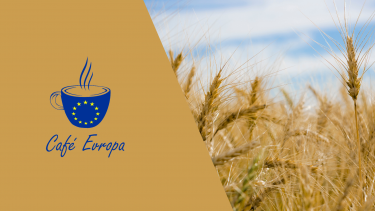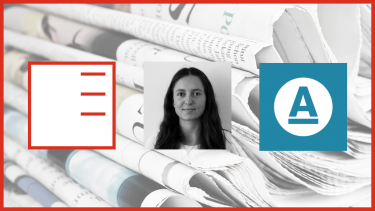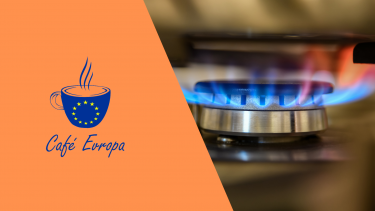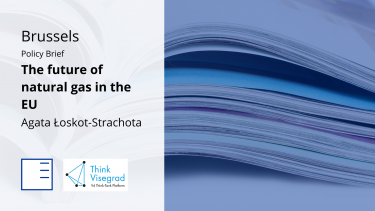BLOG: French elections amidst the French Presidency – a reflection of the impact of the French Presidential campaign
Esteban Gas has written a blog about the French elections that took place during the French presidency. While Macron’s re-election at a glance enables another term of continuation of the existing French agenda in the Union, the tightening of the gap between the far-right and Macron will have to be acknowledged politically in the years to come and might affect the EU.
Show more PDFINVITATION: Implications of the Russian Invasion of Ukraine for the Western Balkans: Challenges and Options for the Czech Presidency
The EUROPEUM Institute for European Policy, the Balkans Policy Advisory Group (BiEPAG) and the European Fund for the Balkans (EFB) invite you to a public conference on the Balkans and its politics at the event entitled: Consequences of the Russian Invasion of Ukraine for the Western Balkans: Challenges and Opportunities for the Czech Presidency. The debate will take place on 11 May 2022 at 18:30 at Impact Hub K10, Koperníkova 10, Prague 2 - Vinohrady, 120 00.
Show more PDFEURACTIV: Czech expert: EU treaty change unlikely after Conference on the Future of Europe
Our research fellow Zuzana Stuchlíková has provided a commentary for EURACTIV on the EU debate on the future of Europe, in which EU citizens are participating. In the commentary, she outlines how crucial the recommendations that will reach the final stage will be and how, if at all, the European Council will implement citizens' proposals.
Show more
INVITATION: Café Evropa online: The future of the Common Agricultural Policy - who will benefit from it?
We invite you to a debate as part of the Café Evropa series, this time on the topic "Café Evropa online: The future of the Common Agricultural Policy - who will benefit from it?". The debate will take place on 25 April at 17:30. Is the increasing support for organic farming a step in the right direction? How to set up eco-schemes for the period 2023-2027 to motivate farmers to farm sustainably?
Show moreAktuálně.cz: How to reduce dependence on Russia: Europe and others tackle gas, oil and coal cuts
Our researcher, Kateřina Davidová, commented for Aktuálně.cz on the latest package of sanctions against Russia by the European Union. According to her, the biggest impact on the Russian economy would be the restriction or ban on the purchase of mineral resources from the largest European customers or even from the whole European union. The best alternative to these energies would be to switch to renewable energy sources, says Kateřina Davidová.
Show more
ČT24: EU leaders negotiate with Chinese leadership
EUROPEUM Institute analyst Alexandr Lagazzi spoke in the program Studia ČT24 about the summit between the European Union and China, which dealt with mutual future relations and economic ties. The conflict in Ukraine was the main topic of discussion on the EU side. It was China's hesitant stance and reaction to economic sanctions against Russia that was addressed, as well as China's rejection of NATO.
Show more
INVITATION: Café Evropa online: The future of European energy - how to ensure stable and clean energy sources without Russia?
We would like to invite you to the Café Evropa debate on 21 March at 17:30 on the topic "The future of European energy - how to ensure stable and clean energy sources without Russia?". The Russian invasion of Ukraine has, among other things, further fuelled the question of energy security in the Czech Republic and the EU and the future of energy in our country. The current security situation points to the need to diversify energy sources as soon as possible, i.e. to secure energy supplies from different regions and countries in order to avoid excessive dependence on Russia. There are also views in the public debate that coal extraction could be temporarily increased, which would enable some countries to cover any shortfalls in resources. Is a complete or even partial halt of Russian gas supplies to the Czech Republic and the European Union a realistic option? What impact would this have on our energy security? How much further increase in energy prices can we expect in this case? How should EU countries react and help households and industry cope with the expected increase? Could a possible temporary increase in coal extraction mean a return to fossil fuels and the end of the EU's climate ambitions? Or could the current problematic situation further accelerate the energy transition?
Show moreINVITATION: EU± // The European Union and the multipolar world after the war in Ukraine
We invite you to the next debate in the EU± series, this time on what position the EU will and should take in the emerging multipolar geopolitical order. The debate will take place online via Facebook on Wednesday March 23 at 17:30.
Show morePolicy Brief: The future of natural gas in the EU
A Policy Brief on the future of natural gas in the European Union was produced during a study visit to the Brussels office of Think Visegrad. The author of the brief, Agata Łoskot-Strachota, focuses on the current market crisis, which has raised questions about the role of gas in the decarbonisation process, as well as the cost and security of supply, and highlights the need for a common gas strategy that is in line with the objectives of the Green Deal, but also responds to short-term challenges.
Show more PDFINFO.cz: Ukraine, Georgia and Moldova are claiming their place in the European Union. Will there be an Eastern Enlargement 2.0?
The European Union's enlargement policy experienced a shock at the end of February when Russia-attacked Ukraine applied for EU membership. In the following days, Georgia and Moldova - other Eastern European countries with European aspirations and under imminent threat from Moscow - did the same without hesitation. Ukraine's application in particular was met with a very positive reaction from the EU. Our researcher Jana Juzová writes for INFO.cz.
Show moreStaroměstské náměstí 4/1
Prague 1 - Staré Město
110 00
tel.: +420 212 246 552
email: europeum@europeum.org
https://www.europeum.org









